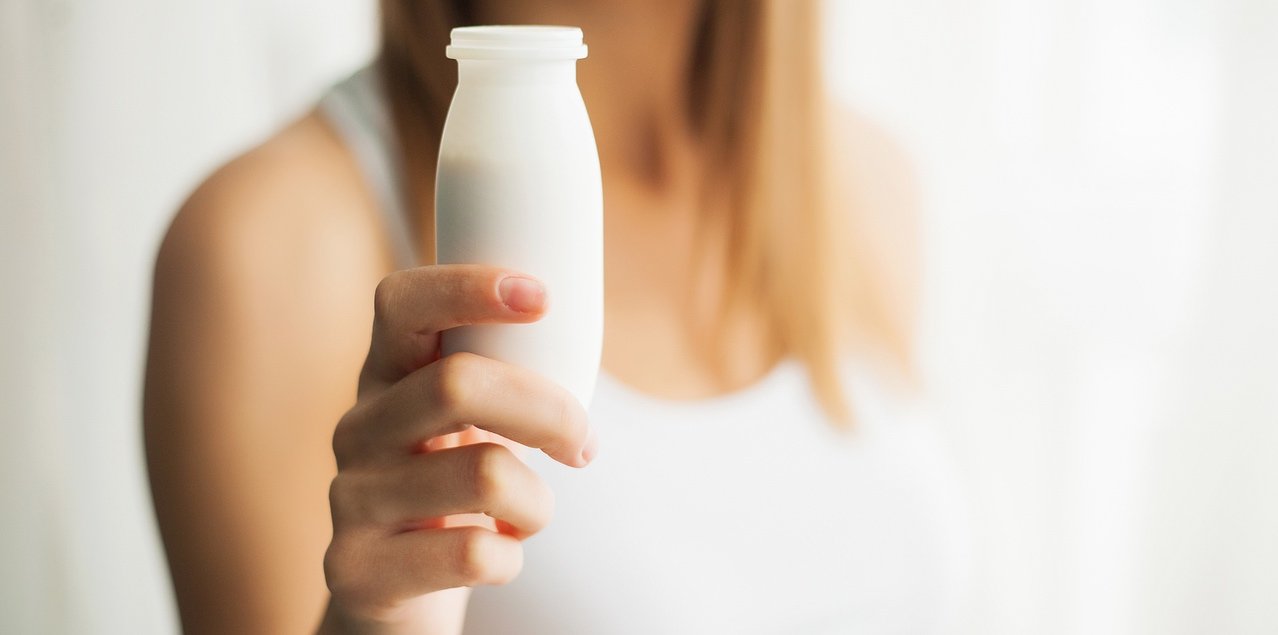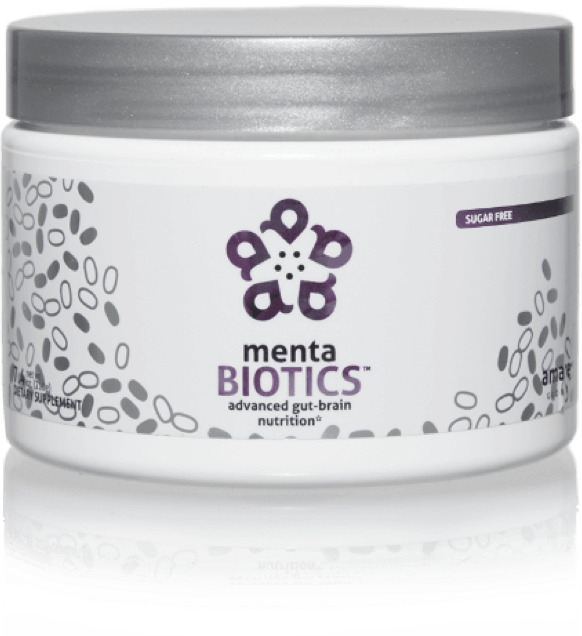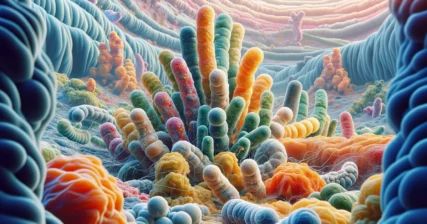Listen on: Apple Podcasts | Spotify
There are fewer solid answers about probiotics than almost any other type of supplement I’ve written or read about. The evidence points to probiotics being good for you, but once you start getting deeper into the details, things get a little fuzzy.
Probiotics clearly provide health benefits, but when it comes to figuring out which ones, when, and how much, the answers aren’t as clear as when you talk about creatine monohydrate, zinc, or protein.
In this article, I’ll provide the best answers I can to the following questions.
What are probiotics?
According to the World Health Organization, a probiotic is a “live microorganism which when administered in adequate amounts benefits the host.”
The key is that the organisms must benefit the host, and that you consume enough to make a difference.
You already have an entire world of critters living on your skin and throughout your digestive system. Most of them are partying in your intestines, where the good ones binge on fiber and the bad ones binge on sugar.
Okay, it might not be that simple, but I’m trying to make this mildly entertaining for a blog post about bacteria.
I’ll focus on the health benefits of probiotics in humans. However, probiotics might be beneficial to your dog, cat, or pet orangutan.
The foods you eat, water and other beverages you drink, and environment you live in all influence the types of bacteria living in and on us.
A quick change to your diet or environment can really mess with the balance of your gut flora. You’ve probably experienced that if you’ve ever drank the tap water at a hotel in Mexico or even gone on a restrictive diet, like a ketogenic or vegan diet.
You’ve housed good and bad bacteria from the moment of your birth.
Factors That Affect a Newborn’s Microbiome
A healthy gut starts at birth and contains Escherichia, Clostridium, Bacteriodes, and Bifidobacterium. The following are factors that affect the health of a newborn’s gut.
- Genetics
- Method of childbirth
- Antibiotics use
- Breast vs. bottle feeding
- Stress or inflammatory level of mother
Though probiotics can be added to infant formula, there’s little to no evidence to suggest formula feeding can be as effective as breast feeding.
What do probiotics do?
Probiotics affect your health in four different ways. They:
- Compete with pathogens for adhesion sites and nutrients. When probiotics outnumber pathogens, there’s a greater chance the pathogens won’t have a place to set up camp and multiply.
- Produce byproducts that improve your health, such as short-chain fatty acids, used by the endothelial cells lining your gut, creating a barrier between your gut and circulation.
- Enhance immune function.
- Influence other organs and tissues by producing neurotransmitters.
Just as a cow’s manure benefits the crops in a farmer’s field, byproducts of probiotics benefit the environment of the gut, and the cells that live there.
| Beneficial Byproducts of Probiotics | |
| Organic acids | Hydrogen peroxide |
| Bacteriocins (peptides that prevent the growth of certain pathogens | Bacteriocin-like inhibitory substances |
| Conjugated linoleic acid (CLA) | Gamma-amino butyric acid (GABA) |
| Short-chain fatty acids (SCFAs) | |
What’s a genus, species, or strain?
When you see probiotics on a food or supplement label, you’ll see them written with two to three words, such as Lactobacillus gasseri KS-13.
The name describes the genus, species, and in some cases, the specific strain.
- Genus (Lactobacillus): The genus is the most general identifier. Organisms of the same genus shares a few common traits, but you wouldn’t want to make an assumption about health benefits based on gunus alone.
- Species (gasseri): Most formulas designed for general health list the genus and species. The species share enough common traits that more specific health benefits can be attributed to them.
- Strain (KS-13): This is the most specific identifier of a probiotic. Usually, when it’s included in a formula, it’s because the strain has very specific, research-supported health benefits. Strain-level formulas also cost a little more.
Other Probiotic-Related Terms
Active Cultures: Live bacteria that may or may not provide a health benefit. All probiotics are active cultures, but not all active cultures are probiotics.
Food products list “Active Cultures” as a marketing tactic, which leads people to believe there’s something special about them, not because there actually is.
Prebiotic: The International Scientific Association for Probiotics and Prebiotics (ISAPP) defines a prebiotic as “a substrate that is selectively utilized by host microorganisms conferring health benefit.”
In essence, a prebiotic is a specific type of food for probiotics that helps that probiotic deliver a health benefit to the person it lives in.
This definition excludes many fibers. Fibers like cellulose and pectin stimulate growth of many types of organisms in the gut, not only probiotics.
However, other components of food, such as fructo-oligosaccharides (FOS) and galacto-oligosaccharides stimulate growth specifically of probiotics.
Synbiotics: A synbiotic is a product that includes both probiotics and prebiotics.
For example, it might contain a few probiotic strains along with FOS. The FOS is there as food to help the probiotics thrive once they reach your intestines.
What are the health benefits of probiotics?
Research is often decades ahead of college textbooks and government guidelines, so it’s unlikely you’ll see some of the following health benefits covered in conventional books. Also, since most probiotics are sold as dietary supplements, the benefits associated with probiotics often sound vague and unimpressive.
However, I’m not trying to sell a specific probiotic with this article, so I’ll review some of the more recent findings and let you do your homework in finding the right product for your needs.
Antibiotics
Contrary to what some of the “hardcore” natural health community believes, there is a time and place to use antibiotics.
Contrary to what the conventional health community believes, you don’t need to take antibiotics for every cough, sneeze, and sniffle.
Somewhere between the two extremes, you may find yourself…
Living in a shotgun shack
And you may find yourself
In another part of the world
And you may find yourself
Behind the wheel of a large automobile
And you may find yourself in a beautiful house
With a beautiful wife
And you may ask yourself, well
How did I get here?
Um…sorry about that. I just had a Talking Heads moment there.
Getting back to antibiotics…you may find yourself in a situation where antibiotics are appropriate.
Antibiotics are to your gut like the asteroid Dotty was to earth in the movie Armageddon, had Bruce Willis and team not saved the day.
In the movie, the President, after being informed of the incoming asteroid asked: “What kind of damage?”
Truman, played by Billy Bob Thorton, responded, “Damage? Total, sir. It’s what we call a global killer. The end of mankind. Doesn’t matter where it hits, nothing would survive, not even bacteria.”
In the effort to kill the pathogens, antibiotics end up killing everything in the gut. Unless the bacteria are antibiotic-resistant bacteria, which is a topic for a whole other article.
Antibiotics wipe out the bad, which is good, but also wipe out the good, which is bad.
They also cause antibiotic-associated diarrhea.
Research shows probiotic supplementation reduces prevalence of antibiotic-associated diarrhea by 42%. That sounds like an impressive stat, but the way research statistics are determined, it sounds more impressive than it is.
It means for every 13 people who use antibiotics, one person would avoid AAD. That said, if I needed to get on a round of antibiotics, I’d absolutely use probiotics to support my gut.
L. rhamnosus GG and S. boulardii seem to have the most positive impact on antibiotic-associated diarrhea.
A broad-spectrum probiotic may also help you rebuild your microbiome.
When taking antibiotics, it’s recommended to take probiotics while taking antibiotics, and for one to three weeks after taking antibiotics.
Read also: Are You Going to Get the Flu Shot?
Endotoxemia
In athletes, hyperthermia, redirection of blood flow from the intestines to working muscles, and dysfunction in the stress response (HPA axis disruption) can lead to gut permeability.
The increased gut permeability then leads to opportunities for bacteria and lipopolysaccharides (LPS) to enter the blood stream. LPS causes endotoxemia, which is common in endurance athletes.
Long-term supplementation with a combination of Lactobacillus acidophilus, Bifidobacterium bifidum, Bifidobacterium animalis, ssp. lactis for more than a month reduced signs of endotoxemia. Research shows Lactobacillus rhamnosus also positively impacts exercise-related intestinal issues.
Some probiotics produce short-chain fatty acids, which enhance the health of the cells lining the gut. The combination of greater probiotic numbers in the intestines, plus the improved health of the gut reduces the risk of pathogens and endotoxins entering the circulation.
Eczema
You probably don’t think of your skin in connection with your gut, but there’s a clear connection between your gut health and the development of eczema. In fact, this is one of the uses of probiotics with the most scientific support.
Inflammatory Bowel Disease, Irritable Bowel Syndrome, and Ulcerative Colitis
A patented formula called VSL#3 has been shown to support irritable bowel syndrome (IBS) and ulcerative colitis (UC).
In studies on the formula, those who used it also saw a reduction in lipids and inflammation, and improvements in insulin sensitivity.
Surprisingly, probiotics seem to have little impact on Crohn’s disease.
Lactose Intolerance
Supplementation with B. animalis has reduced symptoms of lactose intolerance.
Mental Health
Certain probiotics have been dubbed “psychobiotics” because of the role they play in mental health. The balance of gut flora has connections with depression, anxiety, schizophrenia, autism, and other neurological issues.
For example, Lactobacillus helveticus R0052 and Bifidobacterium longum R0175 may reduce symptoms of depression and anxiety, while other combinations of probiotic species may reduce negative thoughts related to depressed mood.
Bifidobacteria and Lactobacillus families my reduce inflammation and feelings of anxiety.
Other probiotics produce neurotransmitters such as GABA, acetylcholine, and serotonin, which can affect everything from sleep to feelings of stress and anxiety.
Though stool samples don’t perfectly represent the makeup of your gut flora, they can be used with almost perfect accuracy to tell if someone suffers from depression.
I personally don’t believe just taking a probiotic supplement will be a solution for depression or anxiety, but it may help when combined with better lifestyle, diet, and other mental health habits.
Metabolic Health
Some evidence suggests probiotics support weight management, normal blood pressure, normal blood cholesterol, and insulin sensitivity.
Lactobacillus gasseri may help reduce body fat levels. However, some probiotics such as Lactobacillus acidophilus and Lactobacillus fermentum could actually lead to weight gain.
Supplementation with L. plantarum TENSIA also decreased body mass index and blood pressure.
A meta-analysis of probiotic studies showed that probiotic supplementation significantly lowered inflammatory markers, including hs-CRP, TNF-a, IL-6, and more.
Probiotics affect bile acids in the gut, which then affects cholesterol absorption. An imbalance of bad and good gut bacteria may change cholesterol absorption, leading to higher cholesterol levels. Said another way, improving the balance of good to bad bacteria in the gut may support healthier cholesterol levels.
Research related to weight management is mixed. Whether probiotics cause weight gain or fat loss likely depends on specific strains, rather than the general use of probiotic species.
Other Possible Digestive Health Benefits
Research shows probiotics may be beneficial with conditions like gastric ulcers, rotavirus, and colorectal cancer. However, much more research is needed to identify which strains could provide the greatest benefit.
Probiotics alone don’t seem to impact h. pylori, but when combined with standard treatment, the rate of recovery seems to be faster.
Traveler’s Diarrhea
Your personal gut microbiome developed over time from the foods you eat, water and other beverages you drink, your hygiene habits, and the environment you live in.
When you visit a new country, you expose your gut to a whole new variety of bacteria. It takes time to adapt. In the meantime, it’s likely you’ll develop diarrhea like you’ve never experienced before.
Instead of wearing a diaper, research shows probiotic supplementation can significantly reduce the chance of developing, or the level of traveler’s diarrhea.
Upper Respiratory Tract Infections
Supplementation with Lactobacillus fermentum or Lactobacillus helveticus significantly reduced the occurrence of upper respiratory tract infections in endurance athletes.
The specific strains were Lactobacillus fermentum VRI-003, PCC®, and Lactobacillus helveticus Lafti L10.
Endurance training is known to increase the risk respiratory infections. However, there’s little supportive research on non-athletes, so don’t take this to mean these strains reduce the risks of colds in everyone.
Animal research shows that probiotics like Lactobacillus acidophilus can increase production of endocannabinoids.
Which Probiotic is the Best?
“Which probiotic is best?”
That’s the million-dollar question, isn’t it? I could easily answer the question of which creatine, collagen, magnesium, or vitamin D is best. But when it comes to probiotics, it’s not so easy.
The benefit of a probiotic depends on the context. It would be like asking “Which shoe is the best?”
That would depend on what you need it for. Is it killer work boot? I’d probably suggest the Red Wing Moc Toe. The best workout shoe? The No Bull Trainer. The best men’s slip-on casual shoe? The Ecco Men’s Intrinsic 2 (I’m on my second pair). The best stiletto. Um, sorry. I have no idea.
My point is, asking about “the best shoe” without any context is like asking about “the best probiotic.”
The more specific your need, the more important it is to use specific strains of probiotics. When you simply want to support overall health and fitness, a good mix of species will serve you well.
So, to help guide you to the right answer for you, I’ve outlined the benefits of specific strains for certain health benefits. Then, I’ve listed the species to look for in a mix of probiotic products to support overall health.
What I’m Using Right Now
My go-to probiotic is MentaBiotics, which is part of the Amare Happy Juice and Fundamentals kits. Key ingredients in MentaBiotics have been shown to result in:
- 60% decrease in irritability scores*
- 55% decrease in anxiousness scores*
- 50% decrease in negative mood scores*
- 49% deduction in overall distress*
- 70% increase in good gut bacteria*
- 211% improvement in overall mood
- 105% decrease in negative mood*
Best Probiotic Strains
Neurological, immune-enhancing, and hormone-supporting probiotics are strain-specific. In addition, the strains below have been studied for the specific health benefits mentioned.
I’ll update this list when I come across research for other specific strains.
- Bifidobacterium animalis subsp. lactis BB-12: Enhances balance of good to bad bacteria in the gut, supports bowel function, and may lessen occurrence of upper respiratory infections and antibiotic-associated diarrhea.
- Bifidobacterium bifidum G9-1: Supports immune function in the gut, helps maintain healthy balance of bacteria in the colon, and supports normal pH.*
- Bifidobacterium breve B-3: May lower body fat levels without a change in diet or exercise habits.
- Bifidobacterium lactis BI-07: May alleviate symptoms of Atopic Dermatitis, enhance immune function, reduce bloating in patients with functional bowel disorders when combined with Lactobacillus acidophilus NCFM, and help restore gut flora after using antibiotics.
- Bifidobacterium lactis HN019: Supports gastrointestinal and immune function.
- Bifidobacterium longum MM-2: supports immune function in the GI tract, bowel regularity, and when combined with B. bifidum enhances absorption of calcium, magnesium, and phosphorus.
- Lactobacillus acidophilus DDS-1: Supports lactose digestion and a healthy immune system, relieves mild constipation, may reduce symptoms of skin conditions, and enhances balance of healthy flora in the gut.
- Lactobacillus acidophilus NCFM: May reduce bloating in patients with functional bowel disorders when combined with Bifidobacterium lactis BI-07, constipation when combined with Bifidobacterium lactis HN019, and alleviate symptoms of lactose intolerance.
- Lactobacillus gasseri KS-13: In a human study, supplementation with l. gasseri KS-13 reduced body and belly fat by 4.6%.
- Lactobacillus plantarum P8: Supports normal inflammatory levels and may reduce occasional feelings of stress or anxiety and enhance memory and cognitive function.
- Lactobacillus rhamnosus GG: May reduce symptoms of Atopic Dermatitis.
Best Probiotic Species
As long as the probiotic strain comes from the same species, it should offer similar health benefits related to vitamin synthesis, warding off pathogens, enhancing gut barrier integrity, supporting bile salt production or cholesterol absorption, and enzymatic activity.
For general health, try to include most of the probiotic species listed below in your diet and supplement plan.
| Bifidobacterium bifidum | Bifidobacterium breve |
| Bifidobacterium lactis (infantis) | Bifidobacterium longum |
| Lactobacillus acidophilus | Lactobacillus brevis |
| Lactobacillus bulgaricus | Lactobacillus casei |
| Lactobacillus gasseri | Lactobacillus paracasei |
| Lactobacillus plantarum | Lactobacillus rhamnosus |
| Lactobacillus salivarius | Lactococcus lactis |
| Streptococcus thermophilus |
Summary
So, what should you do when searching for probiotics to support your health? These are my recommendations.
- Eat some fermented foods as part of your diet, such as kefir, yogurt, and sauerkraut. However, don’t overdo it. You can get too much of a good thing, and you get a limited number of species with each food product.
- Use a few different, professional-quality supplement formulas with varying species and/or strains. If you have a specific health issue, order a formula that contains the specific strains studied for that issue. If you just hope to enhance health and digestion, use a variety of research-supported species.
- Rotate your use of probiotic formulas. For example, I use three formulas right now, and. rotate them.
- Keep eating and taking your probiotics. Most of the research shows that it takes one to two months to experience health benefits.
- Support your gut by eating quality food, getting sufficient sleep, avoiding excessive cardio or endurance activity, and getting some prebiotic fibers in your diet.
We’re a long way from knowing everything about probiotics, prebiotics, and the role of your gut in health and disease. However, the evidence is more than convincing to recommend probiotics as part of your Foundational Five.

Feel Better Fast. Guaranteed.
Energy+, EDGE, and MentaBiotics make up the Happy Juice supplement stack, with ingredients clinically proven to:
- decrease anxiousness scores by 55%
- decrease irritability scores by 60%
- decrease fatigue by 64%
- decrease anger 54%
- decrease tension by 45%
- decrease confusion by 43%
- decrease overall distress by 49%
- increase good bacteria by 70%
- decrease negative mood by 105%
- increase positive mood by 211%




